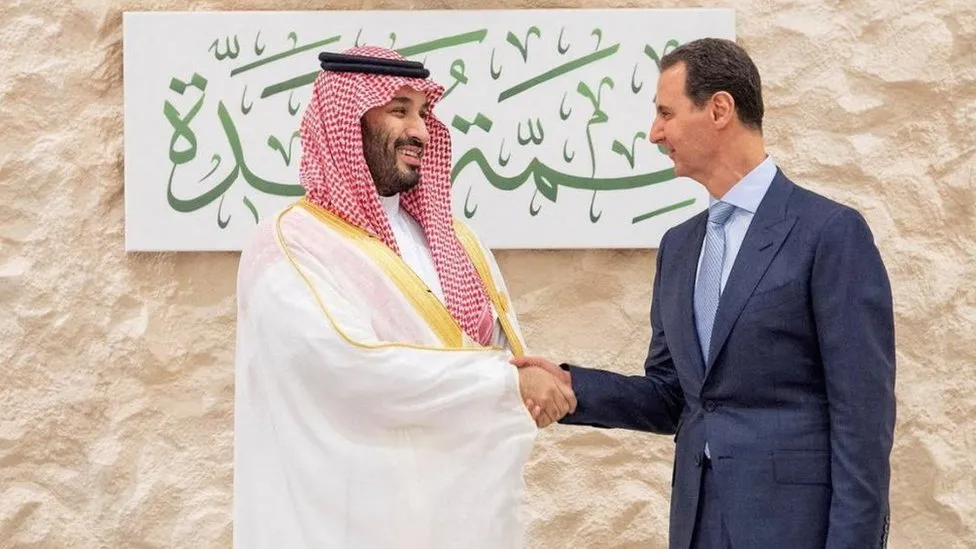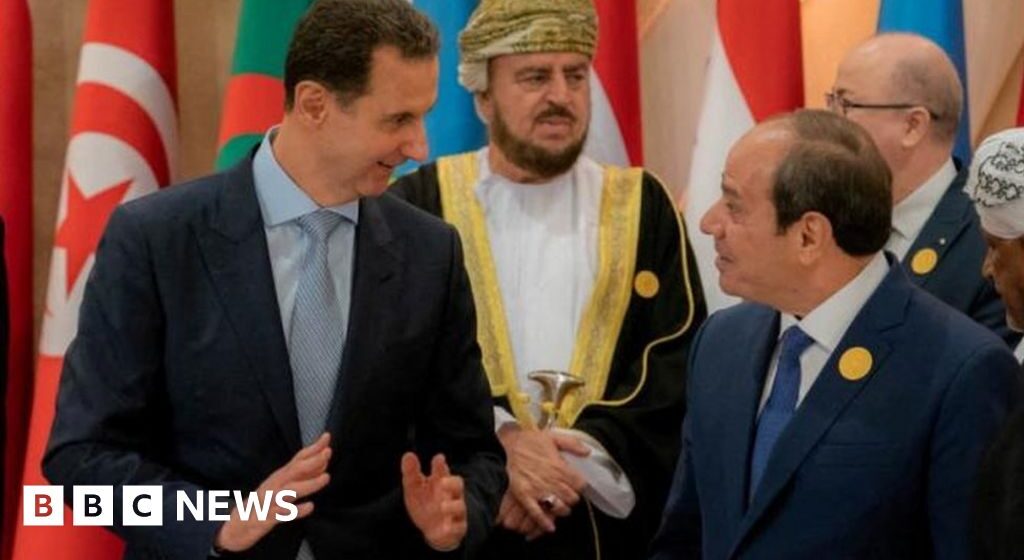Syrian President Bashar al-Assad spoke of a “historic opportunity” for Arab states to rebuild their region “with the least foreign intervention” in his first visit to an Arab League summit in more than a decade.
He said Arab leaders should build on reconciliation ahead of the summit.
Syria was expelled from the group at the start of the civil war in 2011.
It was readmitted after states that backed the opposition accepted that Mr Assad’s rule was secure.
“I hope this marks the beginning of a new phase of Arab action for solidarity among us, for peace in our region, development and prosperity instead of war and destruction,” he told delegates.
“Today is a historic opportunity to rearrange our affairs with the least foreign interference,” he added.
Mr Assad’s appearance was highly anticipated as he was invited by Saudi Arabia to attend only last week.
He was warmly welcomed, receiving a hug from his Saudi host, Crown Prince Mohammed bin Salman. Saudi Arabia has for years supported rebel groups fighting to oust President Assad with money and weapons. However, this has been scaled back as jihadist groups have grown more powerful and Mr Assad has crushed the rebels since Russia intervened in 2015.
At a meeting of foreign ministers of the 22 member states on Wednesday, Arab League Secretary-General Ahmed Abul Gheit said he hoped “the return of Syria to its place heralds the end of its conflict.”
But not every country was enthusiastic about rebuilding Syria.

Qatar’s foreign minister told a press conference in Doha that the country had dropped its opposition only because it did not want to “deviate from the Arab consensus.”
Meanwhile, the US said it “does not believe Syria deserves readmission”.
“Our position is clear – we will not normalize relations with the Assad regime, and we certainly do not support others doing so,” State Department spokesman Vedant Patel told reporters.
There is a growing rapprochement between Arab states and Syria, which has accelerated since the devastating earthquake that struck Turkey and northwestern Syria in February. In the wake of the disaster, once-hostile forces have sent humanitarian aid to Syrian government-held areas.
China also brokered a surprise deal in March that saw Saudi Arabia restore diplomatic ties with longtime regional rival Iran, which along with Russia helped Assad’s forces regain control of Syria’s biggest cities.
However, large parts of the country are still held by Turkish-backed rebels, jihadists and Kurdish-led militias backed by the United States.
About half a million people have been killed in the war and half of Syria’s pre-war population of 22 million has had to flee their homes. About 6.8 million people are internally displaced and another 6 million are refugees or asylum seekers abroad.
Even before the earthquake hit, an estimated 15.3 million people in Syria needed some form of humanitarian assistance, an all-time high since the war began.


Leave a Reply